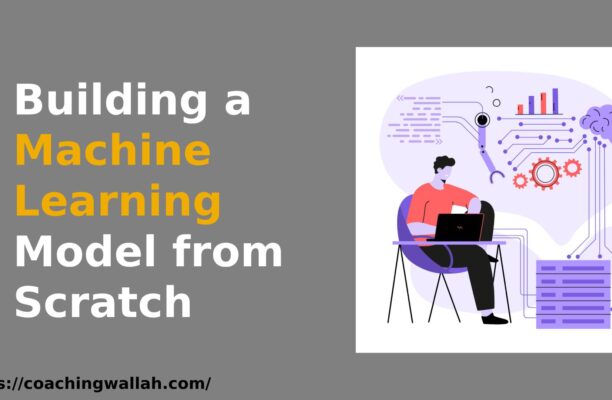In the world of technology, Python is one of the most versatile and widely used programming languages. Known for its simplicity, readability, and vast ecosystem of libraries and frameworks, Python has become a popular choice for aspiring software engineers. Whether you’re looking to build web applications, work with data, or develop automation scripts, Python can help you achieve your goals.
If you’ve set your sights on becoming a software engineer, Python is an excellent language to start with. In this blog, we’ll explore the steps you can take to become a software engineer using Python.
Why Choose Python?
Before diving into the process of becoming a software engineer with Python, let’s first understand why Python is so popular:
- Ease of Learning
Python’s syntax is clear and intuitive, making it easy for beginners to pick up. You can quickly start writing useful code with fewer lines compared to other languages. - Versatility
Python is used in a wide range of domains: web development, data science, artificial intelligence, machine learning, automation, and more. - Strong Community and Libraries
Python has a large, supportive community and a vast collection of libraries and frameworks (like Django, Flask, Pandas, TensorFlow) that speed up development and expand its functionality. - High Demand
Python developers are in high demand across industries. Whether it’s building websites, developing software, or creating data-driven solutions, Python developers are needed in various fields.
Steps to Becoming a Software Engineer with Python
1. Learn the Basics of Python
To start, you need to learn the fundamentals of Python. This will include understanding:
- Variables and Data Types: Strings, numbers, lists, dictionaries, etc.
- Control Structures: If-else statements, loops (for, while), and logical operators.
- Functions: How to write reusable functions and work with arguments and return values.
- Object-Oriented Programming (OOP): Understand classes, objects, inheritance, and polymorphism.
Start by working through tutorials and online courses. Platforms like coachingwallah, Codecademy, freeCodeCamp, and Coursera offer structured Python courses for beginners.
2. Master Problem-Solving and Algorithms
As a software engineer, solving problems efficiently is a key skill. Start focusing on algorithms and data structures, which will help you write more efficient and optimized code.
Learn about:
- Arrays, Linked Lists, Stacks, Queues
- Trees, Graphs, Hashing
- Sorting and Searching Algorithms
- Dynamic Programming
Practice solving problems on platforms like LeetCode, HackerRank, and Codewars to strengthen your problem-solving skills.
3. Understand Software Development Concepts
Becoming a software engineer involves more than just coding. It’s important to understand software development principles, including:
- Version Control Systems: Learn Git and GitHub to collaborate with others and manage your codebase.
- Agile Methodology: Understand the basics of Agile and Scrum, which are widely used in modern software development teams.
- Testing: Learn how to write unit tests in Python using libraries like unittest or pytest.
- Debugging: Master debugging techniques to identify and fix errors in your code efficiently.
4. Learn Web Development with Python
If you’re interested in building web applications, learning Python’s web development frameworks is essential.
- Flask: A lightweight framework suitable for small projects.
- Django: A full-fledged framework for building large, scalable web applications.
Start by creating simple projects like a to-do list app or a personal blog. This will help you grasp how to work with databases (using SQLite or PostgreSQL) and learn about web servers, authentication, and routing.
5. Explore Data Science and Machine Learning (Optional)
Python is a go-to language for data science and machine learning. If you’re interested in these fields, you’ll want to learn the following:
- Libraries: Pandas (data analysis), NumPy (numerical computations), Matplotlib (visualisation), and Scikit-learn (machine learning).
- Algorithms: Supervised and unsupervised learning, classification, regression, clustering.
- Data Manipulation: How to clean and transform data to make it usable for machine learning models.
By working on projects such as building recommendation systems or analysing datasets, you can gain a deeper understanding of these technologies.
6. Build Projects
To gain practical experience and build your portfolio, start working on real-world projects. These projects will help you apply your knowledge and demonstrate your skills to potential employers.
Examples of projects you can work on:
- Personal Portfolio Website: Showcase your skills and projects.
- E-commerce Website: Build a small online store using Django or Flask.
- To-Do List App: A simple application to track tasks.
- Chatbot: Create a chatbot using Python libraries like NLTK or TensorFlow.
The key is to start small and gradually increase the complexity of your projects.
7. Contribute to Open-Source Projects
Contributing to open-source projects is a great way to collaborate with others, improve your coding skills, and gain experience. Platforms like GitHub host thousands of open-source Python projects where you can contribute by fixing bugs, adding features, or improving documentation.
By contributing, you’ll not only improve your technical skills but also learn how to work within a team and follow best practices in software development.
8. Keep Learning and Networking
Technology evolves rapidly, so it’s crucial to keep learning. Attend conferences, webinars, or join local meetups. Follow blogs, podcasts, and YouTube channels that focus on Python development.
Networking with other software engineers can also help you stay updated on industry trends, job opportunities, and best practices.
Final Thoughts
Becoming a software engineer with Python is an exciting and rewarding journey. By following these steps — from learning the basics of Python to building projects and contributing to open-source — you can build a solid foundation for your career. Python is a powerful tool that will open doors to numerous opportunities in web development, data science, machine learning, and beyond.
At Coaching Wallah, we offer resources and tutorials to help you get started on your Python journey and build the skills needed to succeed in the world of software engineering.
Start coding today, and soon you’ll be on your way to becoming a proficient Python software engineer!




Leave your comment